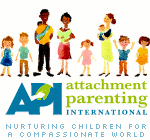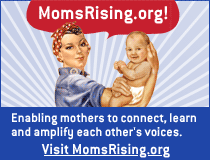 The Journal of Pediatrics recently published the results of study that revealed the "truth" about those popular educational videos for babies. Some of the results probably didn't surprise you, but some of them may have. Besides finding that the videos don't actually help 6-18 month-olds learn, researchers also showed that those children knew fewer words than children who didn't watch the videos. The more they watched, the study said, the less they knew. Ouch.
The Journal of Pediatrics recently published the results of study that revealed the "truth" about those popular educational videos for babies. Some of the results probably didn't surprise you, but some of them may have. Besides finding that the videos don't actually help 6-18 month-olds learn, researchers also showed that those children knew fewer words than children who didn't watch the videos. The more they watched, the study said, the less they knew. Ouch.
I think most reasonable people know that it's not o.k. to leave child-rearing to the television, but I'm not convinced that that's how most people use the Baby Einstein or Brainy Baby videos. I believe the majority of parents who buy the videos don't play them hours a day every day, but instead sprinkle them in between a host of other activities designed to give Junior a head start in life. I don't own any myself though and have never watched one. (I did check one out from the library once, but it didn't work.) Like anything in our lives, when things are overused, they become abused and any potential positive effects are lost. As parents, we are bombarded with news, gadgets, and gimmicks and it is up to us to do our research and be judicious with their use. I can see the videos as a useful tool to enhance learning.
Likewise, babywearing can be a useful tool for the parent interested in enhancing their child's intelligence, language development, and social interaction.
Babywearing benefit #3: Wearing your baby makes her smarter.
If I had my child development book in front of me, I'd quote lots of impressive statistics and give you lists of research articles to back this claim. But I don't. You might have to do your own research or you might just go by what I say. Either way, as a parent you probably already know that talking to and interacting with your child benefits them in many ways, one of which is language development. And language development is an important component to intelligence, as is the quality and quantity of social interaction.
Babies love looking at faces, and learn alot from them. When Zoë's in her stroller, she is much further away from me and cannot see my face when I talk. Wearing Zoë in a sling, she is nearer to me and closer to my face than she would be if she were in a swing, bouncy seat or, stroller. Because of that, I engage with her that much more, talking to her as I work around my home. As a tiny baby, she delighted at the sound of my and my husband's voices. Then as she grew older and more curious, she was excited to watch as I did my work around the house, watching water splashing in the sink as I washed dishes, or the gentle motion of dusting or vacuuming with her on my back. She was able to see with a bird's eye view and become involved in the rhythm of daily life.
And whenever I wear her, other people talk to her more too. They can't help it, she's at their eye level and learning even more about vocabulary and the nuances of human communication. She gets to look people in the eyes, study their faces, and see how I respond. Over time, that can mean learning many nonverbal cues, including body language, tone of voice and how people communicate emotions. Recently, I have become more interested in international adoption and hope to experience this joy first hand one day. I am sure that the frequent use of a baby carrier would do so much for a baby or toddler who has grown up immersed another culture, enhancing the bonding experience as well as the learning of a new language.
Of course, these are things children learn anyway as they grow up. Babywearing just ups the ante a bit. It gives your baby more opportunities for this kind of learning while fostering a sense of security by being close to you. Like any tool, the sling doesn't do the work for you, it's the parent's use of the sling that makes all the difference.
Be sure to read more about all the benefits babywearing can have for your baby.![]()
Monday, August 13, 2007
No Baby Einstein - babywearing benefit #3
Read more like this: babywearing, babywearing benefits
Subscribe to:
Post Comments (Atom)



























No comments:
Post a Comment